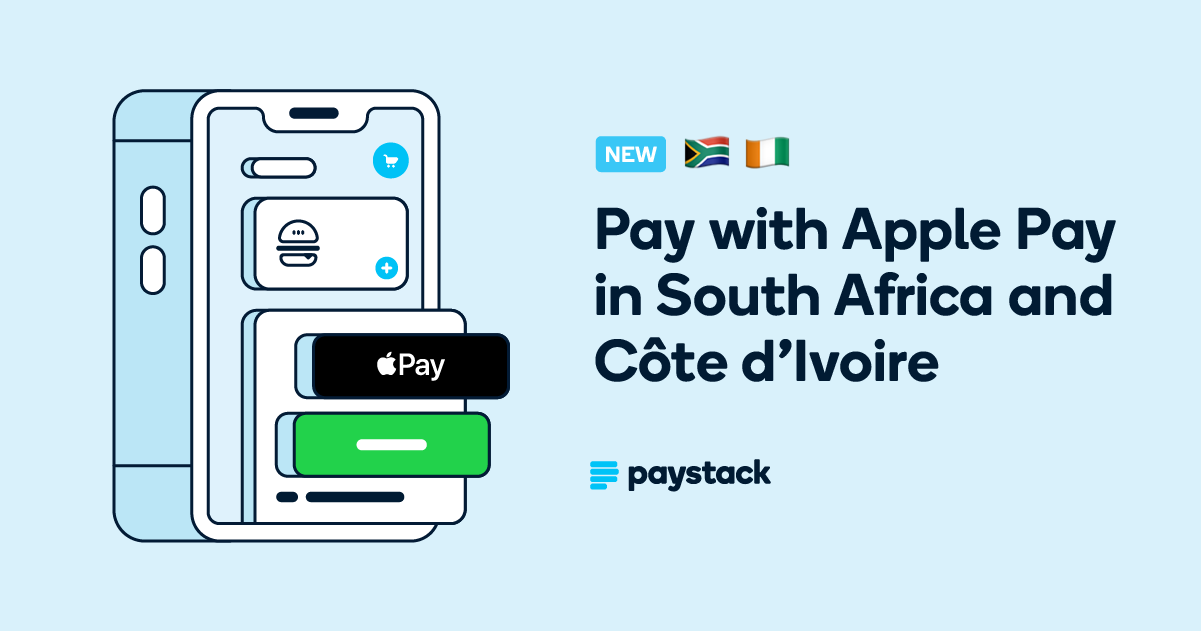

TGIF ☀️
It’s the season of love and tech boys and girls are not left out.
Our sister publication, Zikoko, has just dropped a Valentine Special where three couples—one with kids, one now married and the last, still best friends—reveal how well they know and love each other, and how their relationships have evolved.
This is your sign to Enter Love today.
Jumia trims losses to $4.5 million and lays off employees in Kenya
Jumia, a leading e-commerce player in Africa, has shown signs of progress in its fight against red ink. In Q3 of 2023, it lost 800,000 active customers but saw a $19 million reduction in operational losses.
Now, its Q4 2023 financial report boasts a significant reduction in operational losses to $4.5 million, due to a strategic decision to shut down Jumia Food, reduce its workforce and focus on higher-value goods.
Following these strides, transactions on JumiaPay, its payment service, grew 41% year-over-year. Jumia CEO, Francis Dufay also claims the company finished 2023 with a significant reduction in losses before tax, down to $98.6 million from $206.2 million in 2022. Jumia also slashed its marketing budget. Their total sales and advertising spend for Q4 2023 was $6.2 million, a 62.8% decrease from Q3 2022.
Cost-cutting wins, but at what cost? Sadly, the progress comes with a painful impact of laying off an undisclosed number of employees 8’ January 2024, in Kenya and other markets to create leaner, agile teams. This comes one year after the e-commerce company laid off 900 employees in an effort to cut costs.
Zoom out: Despite the progress, Jumia remains unprofitable. Economic headwinds like inflation and currency devaluation resulted in a 22% drop in orders and a decline in Jumia’s user base to 2.3 million active users, losing 500,000 active customers in Q4 compared to the same period in 2022. Its revenue also took a hit. It dipped 8.3% in 2023, falling from $203.3 million in 2022 to $186.6 million.
Access payments with Moniepoint

You don’t have to take our word for it. Give it a shot like he did Click here to experience fast and reliable personal banking with Moniepoint.
Gokada pivots to an asset-light model
Nigeria’s last-mile delivery market is projected to reach a staggering $58.6 billion by 2029, fueled by an e-commerce surge which was reportedly expected to reach $9.2 billion by the end of 2023.
This promise is marred by Nigeria’s terrible roads—the worst in Africa—traffic congestion in major cities like Lagos, and even some government policies like the recent fuel subsidy removal which has quadrupled fuel prices
This is the harsh reality of startups like Gokada, forced to adapt and fight for survival in the delivery space. The Nigerian last-mile delivery company has pivoted to an asset-light model to stay afloat and find new funding.
Why pivot? Founded in 2017, Gokada bought bikes for their drivers under a hire-purchase plan. Drivers had a repayment plan spread for up to three years, eventually becoming owners. This meant Gokada shouldered maintenance costs, which ballooned to tens of thousands of dollars a month in late 2021 and early 2022. And according to the COO Oluwaseun Omotosho, continuing on this path meant the business would have shut down.
Now, with the company going asset-light, Gokada owns only 10% of the 5,000 bikes on its platform, and drivers become partners and handle their bike maintenance. Gokada just connects them with financing companies, oversees payment collection and takes a commission.
However, the shift isn’t just about saving cash. Gokada is also looking for new investors after a tough past three years.
What happened? In 2020, a motorcycle ban in Lagos forced Gokada to ditch ride-hailing and switch to deliveries. They laid off 80% of their staff. Their then-CEO, Fahim Saleh, was also tragically murdered that same year. In 2022, the delivery company considered selling the business to a competitor, Kwik Logistics, but the deal did not go through.
2023 also brought another blow as 54 employees were laid off in February due to harsh macroeconomic conditions and had to run a leaner operation, closing one office and renegotiating terms with vendors.
More logistic startups shutdown: The harsh reality hasn’t spared other logistics startups like Hytch and GoMyWay, who have all shut down in 2023 and 2018 respsectively, due to a lack of funding.
Secure payment gateway for your business

Fincra’s payment gateway enables you to easily collect Naira payments as a business; you can collect payments in minutes through bank transfers, cards, virtual accounts and mobile money. Create a free account and start collecting NGN payments with Fincra.
Nigeria’s soaring Inflation nears 30% mark
Nigeria’s January 2024 inflation figure of 29.90% marks a grim milestone – the highest since 1996, a period etched in memory for its crushing poverty and economic instability under the Abacha regime.
While the country has avoided repeating such historical lows, the current situation raises serious concerns.
Domestic issues like insecurity in agricultural regions and currency depreciation are among several factors driving Nigeria’s inflationary surge. Food inflation currently reads 35.5% , while the CBN has an unmet backlog of FX demand estimated at $2.2 billion.
Despite implementing monetary tightening measures like raised interest rates and cash reserve requirements, the Central Bank of Nigeria (CBN) has struggled to effectively curb inflation.
Critics argue that the CBN has ignored its inflation target of 6-9% set in 2014 and argue that the current measures primarily impact businesses and individuals seeking loans, further hindering economic growth.
A way out? Despite repeated promises to address inflation, Nigeria’s Central Bank Governor, Olayemi Cardoso, has offered limited specifics on his plans. At the recent Nigerian Economic Summit Group (NESG) meeting, Cardoso predicted inflation would fall to 21.4%, but details remain unclear.
To curb the gruesome inflation, analysts expect the CBN is to raise interest rates by 5% at its next Monetary Policy Committee (MPC) meeting on February 26-27, 2024.
Uganda adds iris biometrics to national IDs
Uganda is adding an extra layer of security to its identity management system.
As the Ugandan government ramps up plan to provide new or renew expiring national ID for its 30 million citizens, the country is adding a new twist with an iris biometrics.
Iris biometrics? The National Identification and Registration Authority (NIRA) says it is adding the iris biometrics as an enhanced security feature for its national ID.
The Iris biometrics captures the unique patterns in your eye’s coloured ring. Similar to fingerprints, each individual’s iris possesses a distinct and highly stable pattern, making it incredibly difficult to forge.
Uganda is not the first country to pull this move. Malawi began incorporating iris scans into its national ID system in 2016. Similar to Uganda, this move aimed to enhance security and prevent fraud. Other African countries utilizing iris recognition in their ID systems include Morocco, Benin, and Zimbabwe.
Zoom out: The new national IDs which serve as a travel document within the East African region will be valid for a 10 year period.
The NIRA will begin enrolling users into the new system as from June 1, 2024, and will wrap up the process by January 2025.
Accept fast, secure payments from millions of Apple Pay users

🚀 Paystack is excited to announce that merchants in South Africa and Côte d’Ivoire can now accept online payments from millions of global customers, with Apple Pay! Learn more →
Funding tracker

This week, Kenyan electric mobility startup Roam, formerly Opibus, raised $24 million in debt and equity funding. This comprised a $14 million Series A equity funding round led by Equator Africa, with support from At One Ventures, TES Ventures, Renew Capital, The World We Want, and One Small Planet, among other investors. An additional $10 million in debt commitment was also secured from the US government’s Development Finance Corporation (DFC).
Here are other deals for the week:
- Ilara Health, a Kenya-based healthtech startup, raised $4.2 million in debt-equity in a pre-Series A round. DOB Equity led the $2.5 million equity round, which included the Philips Foundation and existing investors such as AAIC INVESTMENT, Angaza Capital, Black Pearl Investments, and Perivoli Innovations. Alphamundi, Kiva Capital, and Boehringer Ingelheim closed the $1.7 debt investment.
- Logidoo, a Morocco-based logistics startup, raised $1.55 million in seed funding. Six venture capitalists led the round: Maroc Numeric Fund II and Kalys Ventures from Morocco; 216 Capital, Tunisia; Gullit VC, Ethiopia; Founders Factory Africa, Nigeria; and Sunny Side Venture Partners, Egypt/Japan.
- Tunisian startup Cynoia secured $930,000 in a funding round. Investors in the round included United Gulf Financial Services, 216 Capital Ventures, and Bpifrance.
Before you go, our much anticipated State Of Tech In Africa Report for Q4 2023 is now out. Click thislink to download it.
Follow us on Twitter, Instagram, and LinkedIn for more funding announcements. You can also visit DealFlow, our real-time funding tracker.
The World Wide Web3
Source:

|
Coin Name |
Current Value |
Day |
Month |
|---|---|---|---|
| $51,668 |
– 0.15% |
+ 21.83% |
|
| $2,812 |
+ 1.40% |
+ 12.39% |
|
|
$1.00 |
– 0.01% |
+ 0.12% |
|
| $352 |
+ 5.34% |
+ 12.26% |
* Data as of 23:19 PM WAT, Febraury 15, 2024.

Experience the best rates and enjoy swift 6-24hrs delivery times. Elevate your business with OneLiquidity–get started today.
- Adeo – Marketing Personnel – Ghana (Remote)
- Flutterwave – Frontend Engineer – Nigeria
- Credpal – Mobile App Developer – Lagos, Nigeria
- Vodacom – Executive Head: Cybersecurity – South Africa (On-site)
- MRI Software – Data Analyst – South Africa (Hybrid)
- Fairmoney – Lead Product Designer – Lagos, Nigeria
There are more jobs on TechCabal’s job board. If you have job opportunities to share, please submit them at bit.ly/tcxjobs.
What else is happening in tech?
Written by: Mariam Muhammad & Faith Omoniyi
Edited by: Timi Odueso
Want more of TechCabal? Sign up for our insightful newsletters on the business and economy of tech in Africa.
- The Next Wave: futuristic analysis of the business of tech in Africa.
- Entering Tech: tech career insights and opportunities in your inbox every Wednesday at 3 PM WAT.
- In a Giffy: business decisions powered by data-driven insights and analysis you can trust.
- TC Scoops: breaking news from TechCabal
P:S If you’re often missing TC Daily in your inbox, check your Promotions folder and move any edition of TC Daily from “Promotions” to your “Main” or “Primary” folder and TC Daily will always come to you.





















